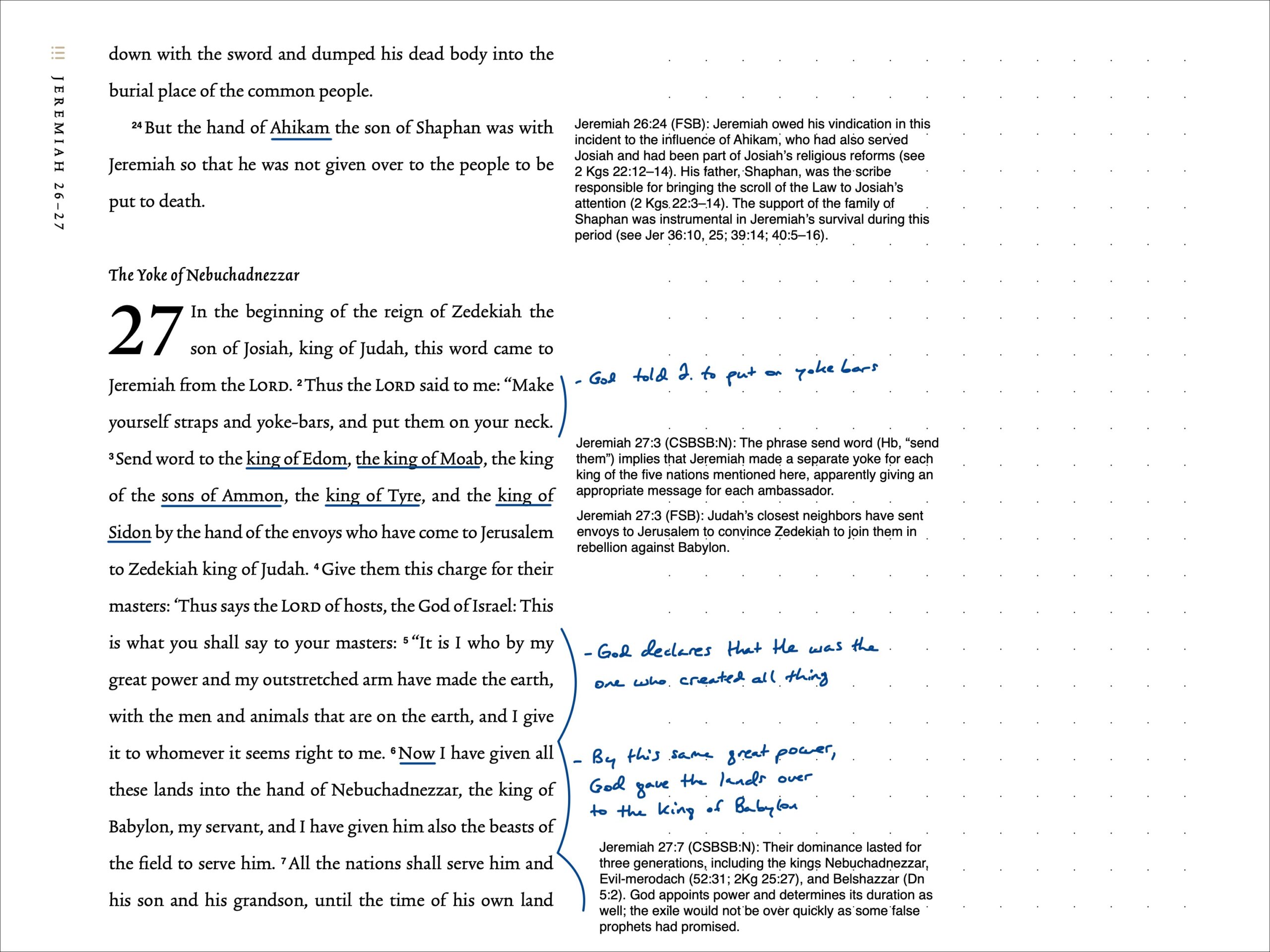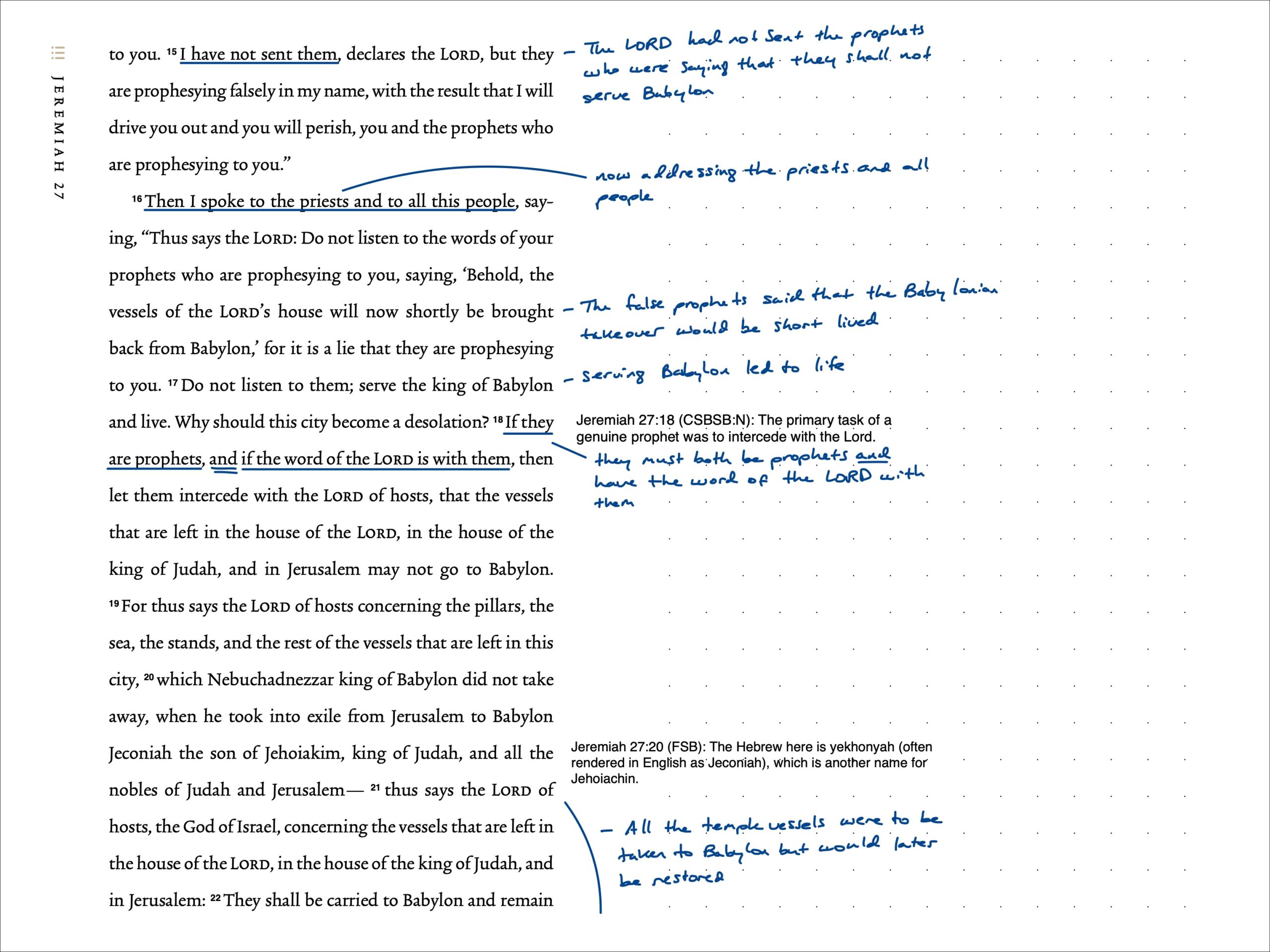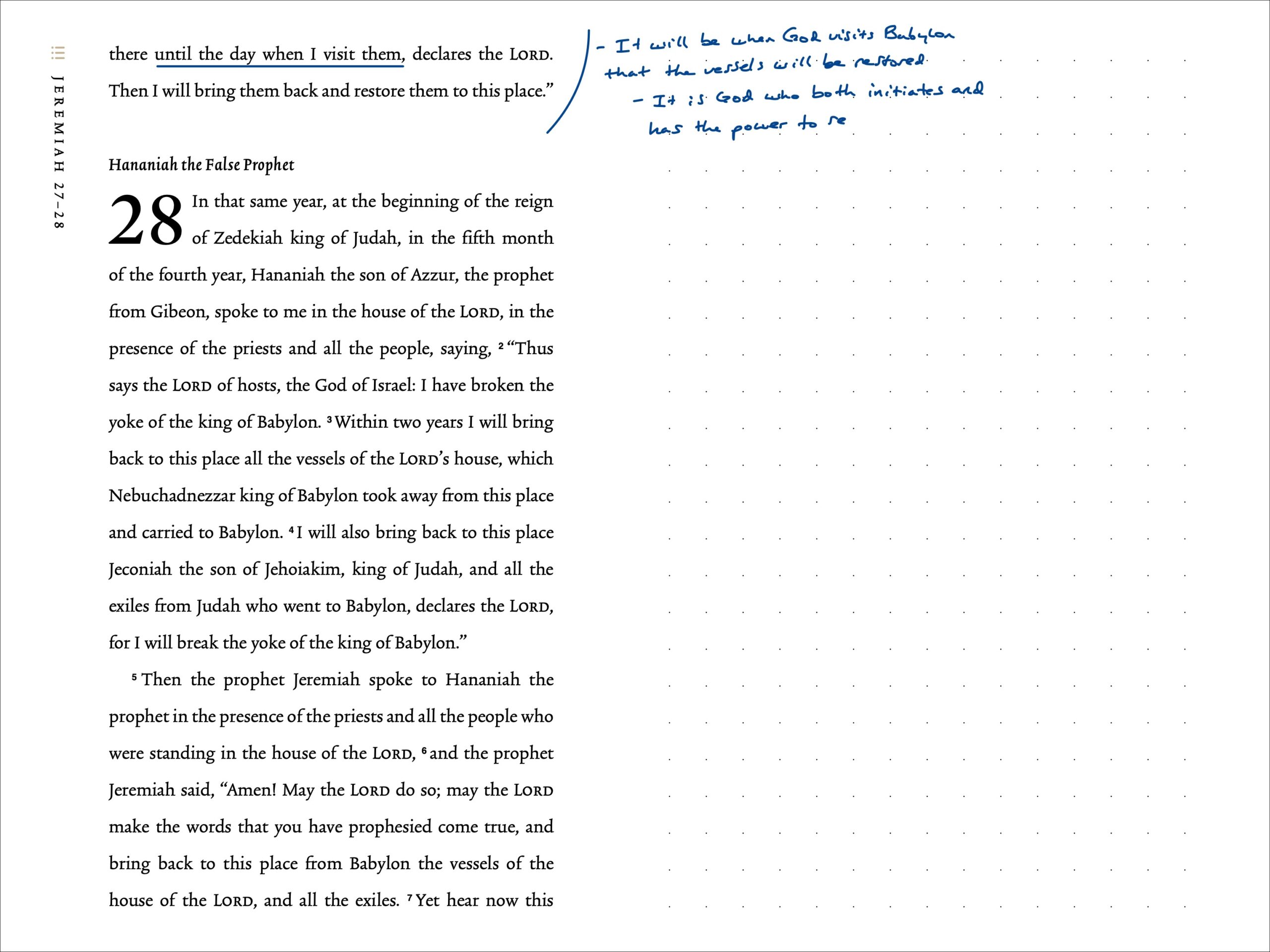| Date | Version | Reading Plan |
|---|---|---|
| @July 20, 2023 | ESV (2016) | ESV Prophets Plan 2023 |
Pericopes
- The Yoke of Nebuchadnezzar
Notes
The chapter opens with a word that came to Jeremiah from the Lord at the beginning of the reign of Zedekiah. Jeremiah was told to make straps and yoke bars and put them on his neck. This was to represent the subjection of the nations to the king of Babylon. In Jer. 27:3, Jeremiah is to send word to multiple nations, each to have a different yoke and message.
In Jer. 27:5-7, God declares that He was the one who created all things with His “outstretched arm” and that it is by this power He has given the lands over to Babylon. The Babylonian dominance was to last for three generations, through the reigns of Nebuchadnezzar, Evil-merodach (Jer. 52:31, 2 Kings 25:27) and Belshazzar (Dan. 5:2).
Jer. 27:9 enumerates the consequences of not following God’s command to come under the yoke of Babylon. Their failure to submit to and serve Babylon would result in punishment through sword, famine and pestilence.
In Jer. 27:10, God tells the people not to listen to the false prophets. Among the list of those not speaking on the Lord’s behalf were 1) prophets, 2) diviners, 3) dreamers, 4) fortune-tellers and 5) sorcerers (Jer. 27:9). Worth noting is that the prophets were included pagan seers who had been banned from Israel during the time of Moses (Deut. 18:9-13). The prophets of Israel had lost the ability to prophecy truthfully and had become every bit as bad as the ones whose practices derived from paganism.
In Jer. 27:12, God shifts His focus to Zedekiah, king of Judah. He was also to be placed under the yoke of Babylon, to serve him so that he and his people may live. God tells Zedekiah that he is also not to listen to the false prophets who tell him that he shall not serve the king of Babylon. God had not sent them and listening to them would result in their perishing (Jer. 27:15).
In Jer. 27:15-18, God shifts again to address the priests and the people, telling them also to not listen to the words of the false prophets. They were speaking of how the Babylonian takeover would be short lived and that the vessels of the house of the Lord would soon be brought back from Babylon.
In the remaining verses (Jer. 27:19-22), God clarifies that all vessels of the Lord’s house that were not taken by Jeconiah (Jehoiachin) when he was taken into exile would be carried to Babylon and remain there “until the day when I visit them”. Only after the time He has appointed will He “bring them back and restore them to this place.” (Jer. 27:22).
Application
Again in this chapter we see a substantial focus on not listening to false prophets. Each group is specifically targeted and told to forgo the prophets’ unfaithful guidance. Its repetition emphasizes God’s passionate disdain for those leading hearts away from Him.
Thanks be to God that He has borne us into such a time and place as this, having been given His Word by which we can gauge transcendent truth. Having the knowledge of the Son of God and fullness in Christ empowers us to “not be tossed to a fro by the waves and carried away by every wind of doctrine” (Eph. 4:14). Trusting in God’s revelation of Himself allows us to boldly walk with him, free from any fear of distraction or derailment.
Scripture Journal Notes
Commentaries & Resources Used
- ESV Study Bible. (Wheaton, IL: Crossway, 2008)
- Faithlife Study Bible (Lexham Press, 2016)
- Believer’s Bible Commentary (Thomas Nelson, 2016)
- CSB Study Bible Notes (Holman Bible Publishers, 2017)
- Matthew Henry’s Commentary on the Whole Bible (Guardian Press, 1976)
- The Bible: A Reader’s Guide (Sterling Publishing, 2011)
- The Infographic Bible (Zondervan, 2018)
- ESV Digital Scripture Journal (Crossway, 2019)



